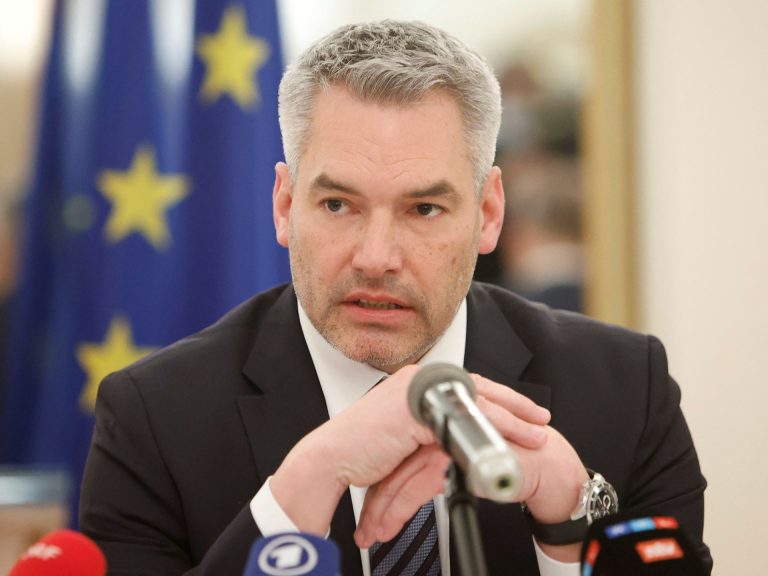Nehammer said his People’s Party would not support measures he said would harm the economy or new taxes.
Austrian Chancellor Karl Nehammer has announced he will resign after negotiations between the country’s largest centrist parties failed to form a government without the far-right Freedom Party (FPO).
Nehammer’s announcement on Saturday prompted Austria’s ruling conservative People’s Party (OVP) to hold a crisis meeting on Sunday to choose a successor.
According to the Kronen Zeitung newspaper, the conservatives elected ÖVP general secretary Christian Stocker as interim leader.
The announcement of Nehammer’s resignation comes a day after the liberal Neos party withdrew from negotiations with the ÖVP and the Social Democrats (SPO).
“After the breakdown of the coalition negotiations, I will do the following: I will step down as chancellor and chairman of the People’s Party in the coming days,” he said.
In a video posted on his social media accounts, the outgoing chancellor said “long and honest” negotiations with the center-left had failed despite a common interest in fending off the winning far right.
Nehammer stressed that his party would not support measures he said could harm the economy or new taxes.
He said he would allow “an orderly transition” and lambasted “radicals who do not offer a single solution to a problem but live only by describing the problems.”
The FPO won the first legislative elections in its history at the end of September with almost 30 percent of the votes.
But other parties refused to govern in a coalition with the eurosceptic and pro-Russia FPO and its leader Herbert Kickl, President Alexander Van der Bellen declared at the end of October. charged Nehammer with forming a coalition.
Nehammer’s announcement comes after it also failed to reach an agreement with Neos.
Neos leader Beate Meinl-Reisinger said progress was impossible and “fundamental reforms” had not been agreed.
The political landscape remains uncertain in Austria, with no immediate possibility of forming a stable government due to persistent party differences.
The president could now appoint another leader and an interim government as the parties try to find a way out of the impasse.
The next Austrian government will face the challenge of saving between 18 and 24 billion euros ($18.5 billion to $24.7 billion), according to the European Commission.
The country’s economy has been in recession for two years, experiencing rising unemployment and its budget stands at 3.7 percent of gross domestic product – above the European Union’s limit of 3 percent.


